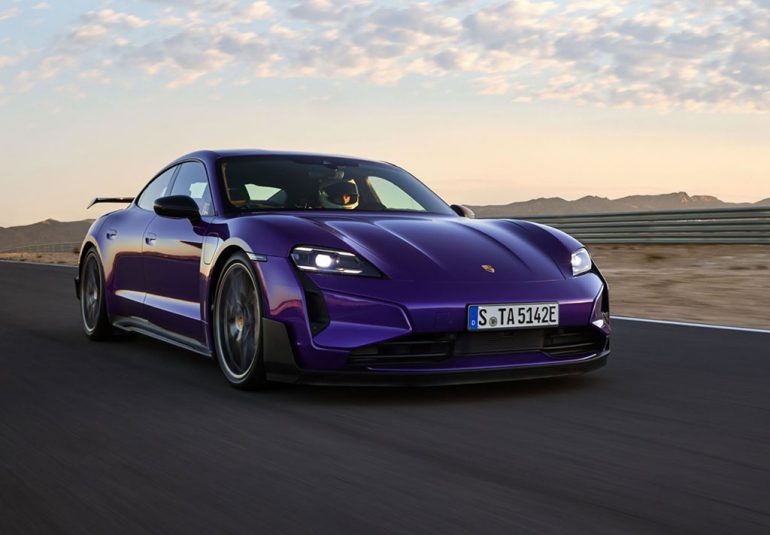
Porsche announced in 2022 their ambitious plan to have over 80% of its sales come from electric vehicles (EVs) by 2030. This bold objective demonstrated the company’s commitment to a sustainable future. However, recent developments have caused Porsche to reconsider the feasibility of this timeline. A company spokesperson recently acknowledged that the shift to electric mobility is progressing more slowly than anticipated five years ago, necessitating a reassessment of their goals.
While Porsche remains committed to its EV strategy, the timeline is now more flexible, acknowledging the varying pace of customer demand and broader electromobility developments. The company still aims for a predominantly electric lineup by 2030, but with the caveat of market conditions influencing the final outcome.
Also, don’t forget that you can get discounted new car pricing with a free quote through qualified local dealer partners.
Porsche’s lineup transformation involves several key models. By 2025, the 718 Boxster and 718 Cayman with internal combustion engines (ICE) will be replaced by their electric counterparts. Following this, the fully electric Macan is set to succeed the first-generation ICE model in 2026. The fourth-generation Cayenne, anticipated later this decade, will also join the electric vehicle lineup.
The Panamera is another model poised for electrification, likely to be positioned above the Taycan as a larger and more luxurious EV option. While a fully electric 911 is not expected within this decade, Porsche has already introduced hybrid technology in the new 911 GTS, laying the groundwork for future electrification.

Porsche is not alone in tempering its electrification goals. Bentley initially aimed for a fully electric lineup by 2030 but has delayed this objective by three years. Mercedes-Benz has also adjusted its expectations, now aiming for EVs and plug-in hybrids to constitute half of its sales by 2030 instead of 2025, with ICE vehicles continuing “well into the 2030s.”
Audi faces similar challenges, with concerns over the Q8 E-Tron and Q8 Sportback E-Tron’s sales performance potentially leading to an earlier-than-expected end of production. The company has attributed this to a “segment-specific intensified drop in demand,” highlighting the unpredictable nature of the EV market.
The adoption of EVs has encountered several obstacles, leading to strategic shifts among automakers. Jaguar, for instance, is transitioning to an all-electric, ultra-luxury brand, discontinuing all current models except for the F-Pace, which will also soon exit the lineup. Ford of Europe has retreated from its goal of an EV-only passenger car lineup by 2030, and Volkswagen has delayed the U.S. launch of the ID.7 due to changing market dynamics.
On the other hand, companies like Toyota and BMW have maintained more conservative approaches. Toyota’s chairman, Akio Toyoda, has projected that electric cars will never exceed a 30% market share, while BMW aims for EVs to represent 50% of its sales by the decade’s end without setting a definitive end date for ICE vehicles.

Automakers are navigating a complex landscape, balancing stringent emissions regulations with the high costs of developing EVs. This dual focus often results in the discontinuation of less popular models, such as coupes and convertibles, to concentrate on higher-demand segments like crossovers and SUVs.
Porsche’s recalibrated EV ambitions reflect a broader industry trend of cautious optimism and strategic flexibility. As the market for electric vehicles continues to evolve, automakers must remain adaptable, ensuring their strategies align with consumer demand and regulatory requirements while advancing towards a more sustainable future.
Source: Reuters